|
Thanks for fulfilling the mitzvah of comforting the mourners. These are unusual times, and I am sorry to complicate your very welcome kindness. Here are the places I will attend minyan virtually, and you are welcome to join. Please visit the websites for connection details. Apologies for cumbersome process. All times Eastern Daylight.
Mornings M-F Monday: 7:30 www.agudasachim-va.org Tuesday-Friday: 8:00 www.spsnyc.org Evenings S, M, T, Th Sunday: 8:15 www.agudasachim-va.org Monday: 5:45 www.spsnyc.org Tuesday & Thursday: 5:45 www.bethelrichmond.org Wednesday evening our extended family will gather privately for comfort and remembrance. In addition, I welcome visits from you during the day, M-Th, between 10am and noon and between 2pm and 4pm. I am limiting visitors to three at a time, outdoors (my front porch) IF you are vaccinated and masked or if you have tested negative within 3 days and are masked. Please write to me ahead of time to schedule a visit for 15 to 30 minutes at [email protected] and include your phone number. No drop-bys please. Memorial contributions are welcome to the Herbert A. Moline Scholarship of The Jewish Theological Seminary (https://inspired.jtsa.edu/moline) or the charity of your choice. 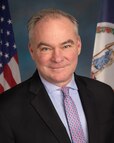 Note: Sen. Tim Kaine (D-VA) distributed this statement to people who expressed their concern about him during and after the insurrection at the US Capitol on January 6. Though connected to a particular event and moment in time, I found it insightful, profound and important. Thoughts on a Saturday Morning So many of you have reached out—while the Capitol attack was going on and in the days since—to ask how I am and express your deep concern over what you saw happening. Rather than respond briefly to each, I though I would write up my own thoughts to share with you all. January 6 re-proved a very old lesson about human nature: character is destiny. America trusted its most important post to a moral defective. Some thought he would grow into the job, or moderate his behavior under the weight of responsibility. That is just not how life works. In all but a very few cases, an adult will behave as s/he has behaved throughout life. In this sense, the set of outrages of the last few years—culminating in a 2020 marked by mismanaging a pandemic thus occasioning unnecessary death and then the violence at the Capitol—is a completely logical ending to a very sad chapter in American life. A second human nature lesson is this—the presence of evil is constant but the success of evil depends upon a key variable, the degree to which people choose to be bystanders. We over-analyze why the President has such a devoted base of supporters. I am more focused on this fact: An awful lot of smart, educated, privileged people chose to be bystanders in the last years and that allowed a pathetic and insecure leader to do things that most of us thought unimaginable in this great nation. The bystanderism started with the tens of millions of Americans who just sat things out in 2016, not able to see the danger that was so clearly before us. And it has sadly continued everywhere, most visibly in Congress. I have lost count of the number of my Senate colleagues who, though privately worried, went along with the unacceptable because they wanted a tax cut, or a judge they liked, an invitation to golf or to avoid a primary challenge. And now some finally awake to the wisdom of the Gospel lesson: “what doth it profit a man to gain the whole world and lose his soul?” And then there are lessons about our nation, humbling lessons. We like to pat ourselves on the back and embrace the notions of “American exceptionalism” or America as “the indispensable nation.” Any truth to these notions resides in what we do rather than who we are. We cannot just claim honors for ourselves without doing the work to justify them. When we are true to our values we approach becoming exceptional and indispensable. But when we are not, self-congratulation is unjustified and hollow, even ridiculous. I remember saying, in the weeks after the November 2016 election, that the next years would be a stress-test of American democracy. And that has been the case every day. Virtually all basic values and our institutions have come under attack from within. Have we passed the test? It might be too early to say for sure. But we have survived the test. My overwhelming emotion on January 6 was anger—that our Capitol was attacked and people died needlessly. But as I walked to work next morning, there was a beautiful sunrise. I thought about the massive engagement of everyday citizens after 2016 in elections and activism. I thought about the historic turnout in the November 2020 election and then again earlier this week in Georgia. And I grew hopeful that we are rejecting the disease of bystanderism to begin a new chapter on January 20. That chapter is not written and its outcome is not a function of words or institutions. It is dependent on us. But the sweep of our history shows that painful periods are often followed by times of great progress. I am an optimist about our next chapter. (Delivered at Temple Beth El, Richmond, VA)
If you are Jewish and among the 7.4 million women suffering from infertility, as I was, you come to dread Rosh Hashanah. Today’s Torah portion about the birth of Isaac doesn’t bring much comfort to those longing for a child. Miracles like Sarah and Abraham’s are, to put it mildly, few and far between. And the message -- “Hey, if Sarah can have a child at 90, you still have hope!” – is infuriating. If medical intervention is unreliable, divine intervention feels even less likely. Rosh Hashanah, and in particular this Torah portion, offer a painful reminder of barrenness. Infertility can affect our relationship with G-d, our feelings of self-worth, our marriages, and our relationship with those around us. The story of Sarah and Abraham’s infertility presents a rare instance when laughter appears in the Torah. When G-d promises Abraham that he: “will bless [Sarah], and moreover, [he] will give you a son by her,” Abraham asks “Shall a child be born to a man who is a hundred years old? Shall Sarah, who is ninety years old bear a child?” G-d answers, “Sarah your wife shall bear you a son, and you shall call his name Isaac.” (Genesis 17:16-19). Isaac, not coincidentally, means “he who will laugh.” When Sarah learns that she is going to have a son (Genesis 18:10), she laughs out loud with scorn: “She looked at her stomach and said, ‘Is it possible that this womb shall bear a child? Can these withered breasts ever produce milk?’” (Gen. 18:12). G-d asked Abraham, “Why did Sarah laugh, saying, Is anything too wondrous for the Lord? I will return to you at the same season next year, and Sarah shall have a son.” (18: 13-14). As we know, Sarah eventually does conceive and birth a child. She says: “G-d has made laughter for me; everyone who hears will laugh over me.” “Who would have said to Abraham that Sarah would nurse children? Yet I have borne him a son in his old age.” Whereas Sarah’s first instance of laughter arose out of disbelief, this second instance suggests a transformed woman whose skepticism has yielded to faith, a faith that importantly will be embraced by both Abraham and Isaac. Sarah’s laughter suggests the range of emotions each of us feels at different times in our lives -- skepticism, belief, or perhaps a combination of the two. When E. and I were trying to have a child, we certainly experienced all of those emotions in addition to depression, exhaustion, and outright misery. For me, years of advanced medical treatment, needles, and high dosages of hormones produced few eggs that could be harvested during my last attempt at in-vitro. Of the paltry eleven eggs produced, only four fertilized. Of the four embryos only three were healthy enough to implant. Of the three, only two matured to fetuses. Of the two, only one survived to become my daughter M. Our second child, T., we always say, willed herself into the universe. When our infertility doctor learned about our natural conception, he threw his arms up into the air, shrugged, and burst out laughing. When M. was born and the nurse placed her in my arms, I was struck with the unexpected realization that I have since shared with many other infertile women. At that moment, I knew M. could have been anyone. She could have come from a surrogate, another biological mother, an adoption agency, or even foster care. Any child would still have been my daughter. The midrash says that when Sarah became pregnant, all the barren women became pregnant, all the deaf became capable of hearing, all the blind were given sight, all the mutes were cured, and all the madmen became sound of mind. Perhaps that was true – but it seems unlikely. Perhaps Sarah’s story teaches us that even for those who have been lucky enough to conceive, the feelings associated with infertility are as complex as Sarah’s laughter. Today, whether a woman overcomes infertility biologically, through adoption, or even accepts that she will never have a child, the pain of the experience never really disappears. If we are fortunate, we learn to accept our circumstances and perhaps grow more compassionate not only with ourselves but with the others among us who also carry their own heartbreak and almost certainly experience the ups and downs of life: laughter and bitterness, confusion and wonder. L’shana Tova. Remarks by my friend and teacher Patti Rounsevell at Agudas Achim Congregation on December 8, 2018.
Shabbat Shalom. I am grateful to have a little of your time this morning to talk about something that is compelling to me, and I hope it will be to you, also. Today’s Torah portion speaks of brothers who left home, fleeing famine. 400 years later, their descendants had to flee Egypt to escape persecution by Pharoah. Those stories are foundational to us, and speak to why the situation with Central American asylum seekers resonates with us as Jews. Like many of you, I have been troubled by our nation’s growing resentment of immigrants, but, until recently, I didn’t know what to do about it. That is until my oldest child, Sarah, was sitting in a bar in Houston, where she now lives, and met some folks really doing something to help. Those people were talking about the Dilley Pro Bono Project, an organization that provides free legal counsel to asylum seekers at the South Texas Family Detention Center in Dilley, Texas. If you read my posting in the Reflection Booklet at High Holidays, you’ll recall that when Sarah called me from that bar, I thought she was signing HERSELF up for the Dilley Project and I was cheering her on. And she thought she was signing ME up, and she was cheering me on. Long story short, in October, I found myself in a godforsaken little town south of San Antonio, headed to do something I wasn’t at all sure I could do. The Detection Center in Dilley, Texas, is one of the places Customs and Border Patrol (CPB) bring women and children from Central America seeking asylum. They are held there until they are called before an immigration official for what is known as a Credible Fear Interview or CFI. In that interview, the official determines if the mother’s or her child’s case has a chance of meeting the US standard for asylum. That standard is very specific, and has gotten more limited in the current administration. It requires that a person be persecuted on the basis of race, religion, nationality, political opinion, or have a specific characteristic that they cannot change (like being the daughter of someone who has received death threats to his entire family.) Asylum is not granted for economic hardship, domestic violence, or general fear. The Dilley Pro Bono Project talks to the detained women, and sometimes their children, to prepare them for their Critical Fear Interview. The hope is that with some guidance those women could be released from Dilley to begin the years-long process of seeking asylum in our courts. Asylum seekers do not have the right to an attorney, which means that people fleeing for their lives to a country where they don’t speak the language or even know the legal codes that define asylum, are asked to appear before an immigration official and make their case. As you can imagine, before the Dilley Pro Bono Project, asylum seekers at this facility had a 50/50 shot of making it through. With the help of this organization, the success rate is now beyond 90%. So, I went to Texas in mid October, along with 11 volunteers. We worked 12+ hour days, barely slept, certainly didn’t eat well, and I didn’t get a margarita the whole time I was there, damn it. But I did hear stories of unimaginable horror and persecution. I know some mighty brave people, but aside from our friend Charlene Shiff of blessed memory who survived the Holocaust on her own as a child, none compare to the women I met in Dilley. Each of them had overcome enormous obstacles to save their children’s lives. They are not coming for economic reasons, they are not terrorists, and they are certainly not middle easterners. Some are simple people, some educated; some poor, some middle class; some rural, some urban; some farmers, some professionals. Each had suffered absolute horror in the country of her birth. Each was braver than the last. I thought I would tell you a couple of their stories, with names changed, of course, to give you an idea of what they have suffered. Esme is from a tiny village in Central America. Six of the twelve houses were already abandoned by her neighbors, who fled in fear. Esme is the sole support her two daughters - she made money selling tomatoes. One of her daughters is less than 10, the other a young teen. The teen has an untreated eye condition that left her partially blind. On a Thursday in September, Esme saw masked men approach a neighbor and shoot her in broad daylight. Two days later, after dark, two masked men banged on Esme's door and forced their way into her house. One of them took off his shirt. When she saw ‘MS' tattooed on his back and shoulder, she knew why they were there. They pulled her daughters out of their beds and forced everyone to kneel, holding a gun first at Esme’s temple and then in her mouth. They took her phone and what little money she had. 'They told me I could not say anything to anyone about what I had seen on Thursday. They said if I didn’t leave by dawn, they would kill me and my daughters.’ Well before dawn, she took her children and fled to her mother’s house, a day’s travel away. She left her youngest with her mother, said goodbye, knowing that she may never see that child again. She and the older daughter left, but in reality, she didn’t know where she was going to go. She knew she couldn’t stay with her mother because there was not enough food there for all of them, plus there was more danger the MS would find them if Esme was there. She started walking, but without direction. At a crossroads she met another mother, a woman she didn’t know, who was walking north. ‘Come with me’ said the other woman. ‘Dios nos cuida’ ‘God will watch over us.’ Esme realized that she had no alternative - no food at her mother’s, she couldn’t go back to her village, she had no place to go. So she and her partially blind daughter traveled with a stranger across El Salvador, Guatemala, and Mexico, on foot. They had no money to buy food, water, shelter, or transportation. Somehow they finally made it to the Rio Grande, but they had no money to pay a boatman to ferry them across. They started to wade into the water, but a boatman took pity on them and floated them across without charge. In short order, she was pick up by CBP, taken to the hielera (cooler/ice box) for several days, and finally brought to the detention center in Dilley. In Dilley the women and children are kept together. They are given new clothing - bright neon sweatsuits, rain jackets, and shoes. They are fed three times a day and given medical care if they are gravely ill. There is a preschool for those toddlers who can bear to be separated from their mothers, and a school for older children. After they have been there a few days, or sometimes weeks, they are given an appointment to go before an immigration officer to explain why they deserve asylum. That’s when the Dilley Pro Bono Project kicks in. I helped Esme organize her claim chronologically, telling her what elements were necessary to be granted asylum so she wouldn’t leave any of those points out. At the end of our interview, I asked if she wanted to call her mother to tell her she was alive, but she had no numbers for anyone in El Salvador. The MS had stolen her phone, so she has not spoken to her mother or her other daughter, and may not be able to ever do so again. I told Esme that I too had had armed men come into my house and threaten me, so I understood some of the terror she felt. The difference is that I live in a place where the police arrived to protect me. At that point in my time at Dilley, Esme was the bravest woman I had met. I told her ‘Espero que Dios siga cuidandole.’ (I hope God will continue to watch over you.) Rape, sexual slavery, child theft, extortion, threats to kill entire extended families. I heard all of these things. The last woman I talked to was barely a woman, but her story is compelling, too. Ima also lived in a tiny village, but she is from a different Central American country. She is only 18, and was still living with her parents and her now two year old daughter, Ana. Ima’s mother did not have work, her father worked in construction, but only when there was work, and there hadn’t been any in a long time. They often went hungry - even the 2 year old - because they had no money for food. Gangs were present everywhere in her little town, and controlled what people could and couldn’t do. We talked to her for awhile, about her life back home, looking for grounds for an asylum claim. Coming from a lawless place where people are starving and the police don’t protect you is not enough. Discrimination based on her race, religion, nationality, or politics? Nothing. Had her family been threatened by the MS? No, they were too poor. We were worried - did she have grounds for asylum? And then we asked, ‘Have you ever been abused?’ A pause. A tear. And then the story came tumbling out, while she cradled her 2 year old. It was as if she held on tight enough to her child, they would both be safe. Here’s what happened to her. Ima was walking to school for her final exams last year, happy that she was about to graduate from high school. The first in her family to do that. A black car with darkened windows pulled up alongside her and two masked men grabbed her and pulled her inside. They each raped her, and then they threw her out of the car. The last thing they said was ‘We know where you live, we know you have siblings, we know you have a child. Say anything to anyone, and we will kill you all. And don’t forget, we will get you again if we want to.’ She didn’t know what to do, so she went on to school. She didn’t say anything to anyone. When she got home that afternoon, she went into the house, and did not come out again for a year. She did not tell her parents what had happened. She didn’t talk to her best friend. She never told anyone about being violated and threatened at 17, until she was sitting in a sterile room under fluorescent lights in Dilley, Texas, with two women she’d never met. During the year she stayed cloistered in her house, she saw the black car going up and down her street. She saw men watching her house. I’m not sure why she decided to leave when she did. I asked her how much money she brought with her on the trip. ‘Nada’ (Nothing), she said. ‘I didn’t have any to bring.’ Was Ima braver than Esme? At 18 years old, carrying her two year old through heat and rain, having no food but what she could beg from others, having to swim rivers because she couldn’t pay to cross. I can’t imagine doing what she did. I told Ima I was glad her daughter is too young to know how she had suffered, but that I hoped one day Ana would know what a strong and courageous mother she has. I hope when you hear politicians talking about these asylum seekers as neer do wells looking for free handouts, that you will know that is not true. These women are coming to escape persecution. They live in a place where there is no law enforcement, where the police are corrupt, where gangs and narco traffickers would as soon shoot you as look at you, and where the murder rates are among the highest in the world. They told me they didn’t want to leave home - even the poor women said they were happy living where they did, that until recently they were among family in a beautiful part of the world that was home to them. They are brave, honest, willing workers with beautiful, smart children that any country should be proud to welcome. All this sounds pretty awful. But I imagine you are asking why theses women didn’t go to the police or just get out of Dodge? Here are some of their answers. Why didn’t you go to the police?
Why don’t you move to another part of El Salvador or Guatemala or Honduras?
In the last century our country closed its doors to European Jews who were fleeing persecution. Our country was afraid the Jews would take American jobs or change the nature of American society. Somehow that sounds familiar to me. It started in 1930 when President Hoover issued an Executive Order saying ‘No one likely to become a public charge’ could be admitted to the US. That is the clause the US State Department used to deny entry to Jews fleeing Nazi persecution before and during WWII. However, in the 1930s, there were Americans who opposed that policy. Francis Perkins, the first female cabinet officer in US history, was Franklin Roosevelt’s Secretary of Labor, and she was so opposed to the State Department’s policy that she said she would personally sign a bond for anyone fleeing Germany so that they would not become a public charge. Would that we now had more cabinet officers like Ms Perkins, willing to do the right thing for those fleeing persecution in Central America. So there are obvious parallels between European Jews fleeing persecution and Central Americans fleeing lawless conditions and persecution in their countries. Not exact parallels, but nonetheless, the Central Americans are fleeing a place where they cannot be safe. As Jews, we are reminded by the Torah to “remember the heart of the stranger because we were strangers in the land of Egypt.” My youngest child, Sus, tells me that the commandment to remember the stranger appears 36 times in the Torah. I think God wanted us to pay attention. At Passover we tell our foundational story, the story of our flight from oppression. Deuteronomy (26:7 - 8) says, ‘We cried to the Lord, the God of our ancestors, and the Lord heard our plea and saw our plight, our misery, and our oppression.’ I don’t know if the Lord hears the cries of these desperate Central Americans. But I heard them, and I hope through me that you can hear them, too. 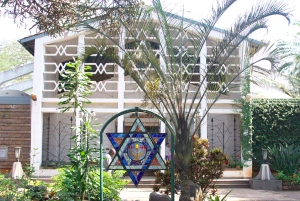 (I invite you to enjoy this extraordinary reflection from my extraordinary niece, Elizabeth Davidson, who works for KIVA (check it out) in Nairobi. Hi family, High holidays are a hard time to be away from family, but I wanted to give your a peak into what mine were like. I spent Rosh Hashanah in Nairobi and attended services at Nairobi Hebrew Congregation, Nairobi's one and only synagogue. Founded in 1904, the shul is still officially Orthodox, despite the fact that most of the congregants are not. You can imagine the kinds of synagogue politics this creates, the most recent being around the new rabbi Chabad is sending (half of the congregation thought a Chabad rabbi was better than nothing; the other half vehemently did not agree). Apparently, the congregation's real reluctance to drop the Orthodox front (women sit on the side of the congregation and the whole shabang) is because doing kashrut certification in Kenya is their one main source of income. There is also some interesting tension around the black Kenyan Jews (not to be confused with the white Kenyan Jews, who are still a dominant faction) in the congregation, who pray in Hebrew and observe rituals in the same way as everyone else. Many congregants are wary of this group, fearing that they are actually Messianic (apparently a large population exists in Kenya) or will somehow corrupt the traditions of the synagogue. There is also some wariness around the conversion of these individuals by some rogue Chabad guy in Uganda and Western Kenya. I don't fully understand the complexities around this, but it's been interesting to observe. One of the coolest things about Nairobi is the huge population of young-ish Jews. We've had a social justice Passover seder, countless shabbat dinners, and, most recently, pulled together a big Rosh Hashanah dinner (yours truly made the challah - thank you Aunt Ann and Mom for showing me how it's done!). A couple of my closest Jew friends and I even went to a nearby park to do tashlich. Here is my friend Elana throwing bread into a less than clean creek. Needless to say, we did not feel bad about polluting. (First picture below) Yom Kippur this year was an even more unique experience. I spent it in a refugee camp in northern Rwanda. While not the most traditional or kosher way to spend Yom Kippur, it was a pretty moving experience and gave me a lot of time to reflect and food for thought. (Second picture below) This refugee camp has been around for 20 years. Can you imagine 20 years of not knowing how long you'll be somewhere, not knowing where you'll end up? The parallels to 40 years of wandering in the desert are pretty obvious. (Third picture below) Despite this, the camp is lively and full of activity. Children go to school (and sport shoes donated by TOMS - apparently they do actually do that one-for-one giving thing), local vendors sell phone credit, and women hawk vegetables and charcoal on the side of the road. (Fourth picture below) Many of the people in this camp have been cleared for resettlement in the US; however, it could be a decade before they actually get to go. So they wait, dreaming about the promised land (again, the parallels!). A few of Kiva's partners, including African Entrepreneur Collective, have been asked by UNHCR to come work in the camp to help grow the local economy, so I had the chance to sit with many entrepreneurs and discuss their businesses, in a mix of French, Swahili, and Kinyarwanda (the last one through a translator since I don't speak much of it!). (Fifth picture below) After 20 years, this camp doesn't look much different from rural villages across Rwanda. And refugees in Rwanda (there are about 300,000 today, mostly from Congo and Burundi) have rights many refugees dream of -- they can work, move freely across the country, and access education. But they still have uncertain futures. Most could never afford to live in a regular village, never mind a city, in Rwanda. Entire generations have grown up here with little prospects of gainful employment. They can't go back to Congo, but have no clear timeline or idea of what's next. Most are just trying to live their lives and eke out something modest to live on. (Sixth picture below) All of this to say, I spent a lot of YK thinking about social justice, oppression, forgiveness, equality, and especially tikkun olam...and my role in it all. It's something I still grapple with. And in the spirit of Yom Kippur, the camp's resident crazy person followed us around yelling "G-d." A good reminder not to forget about the spirit in the sky on the holiest day. (Last picture below) Peace, love, and happiness in the new year. Look forward to seeing you all in December. Love, Elizabeth |
AuthorWrite something about yourself. No need to be fancy, just an overview. Archives
March 2021
Categories |
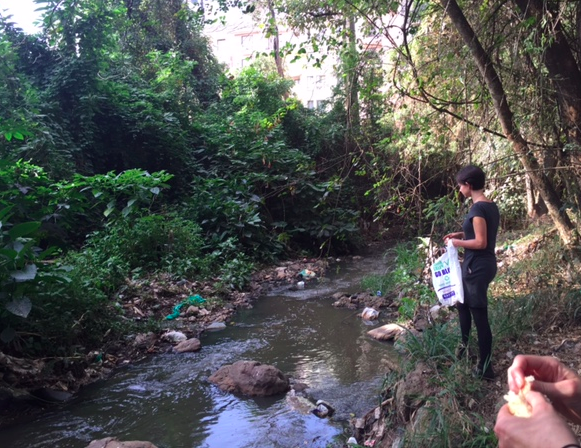
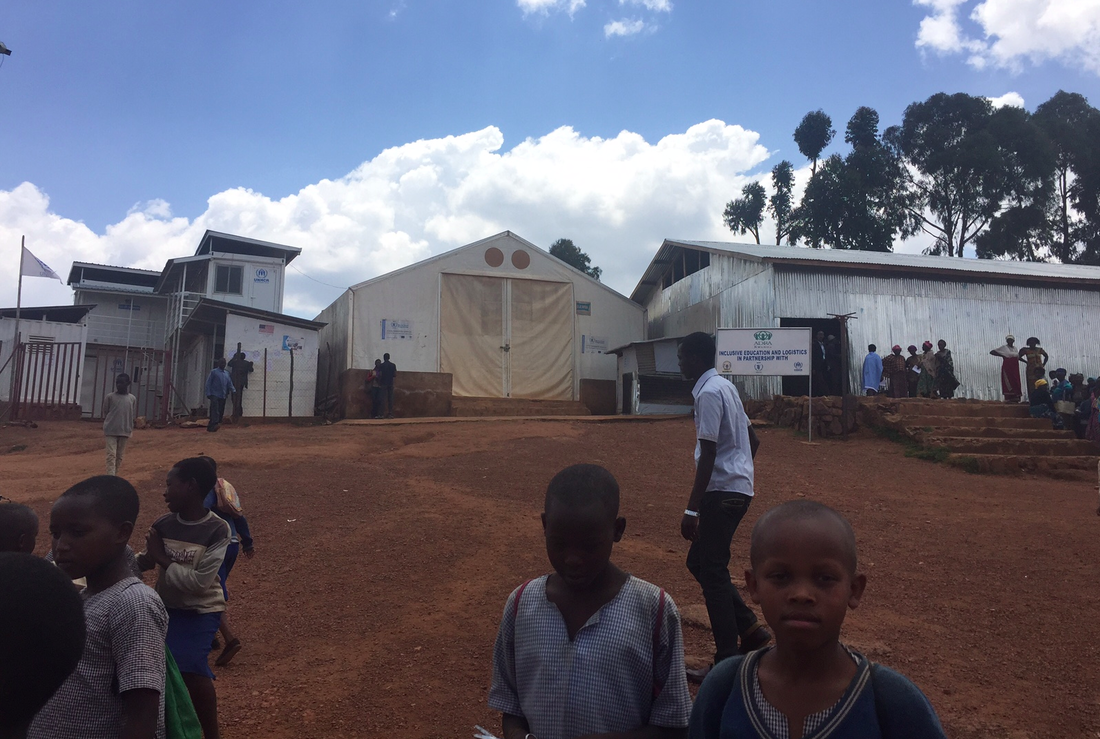
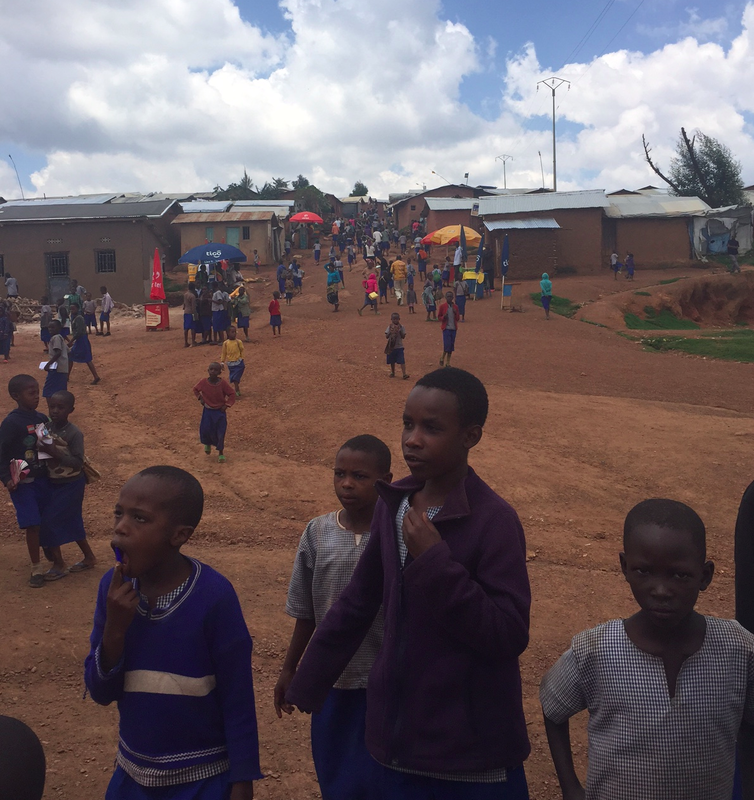
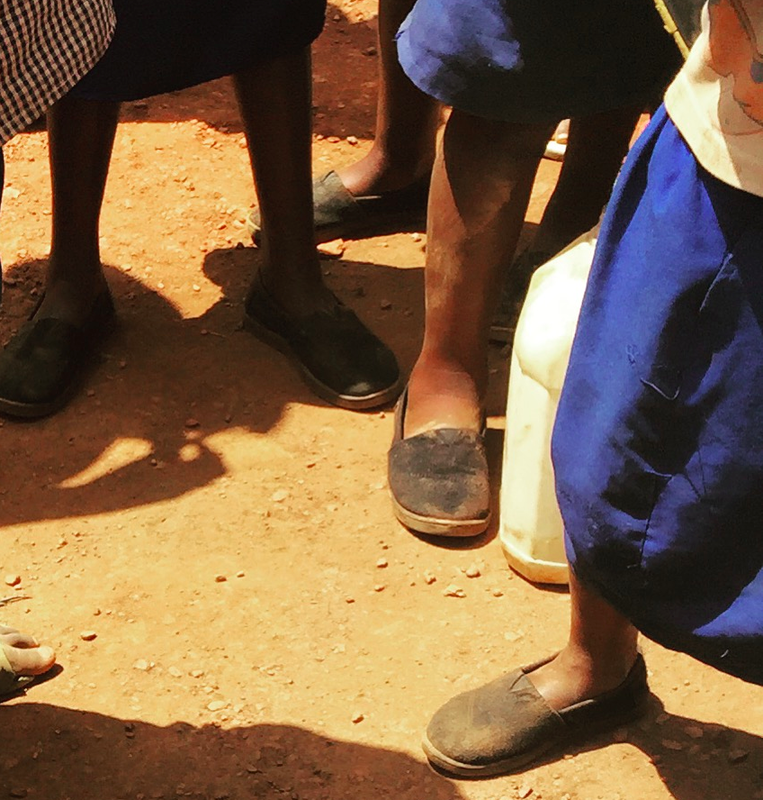
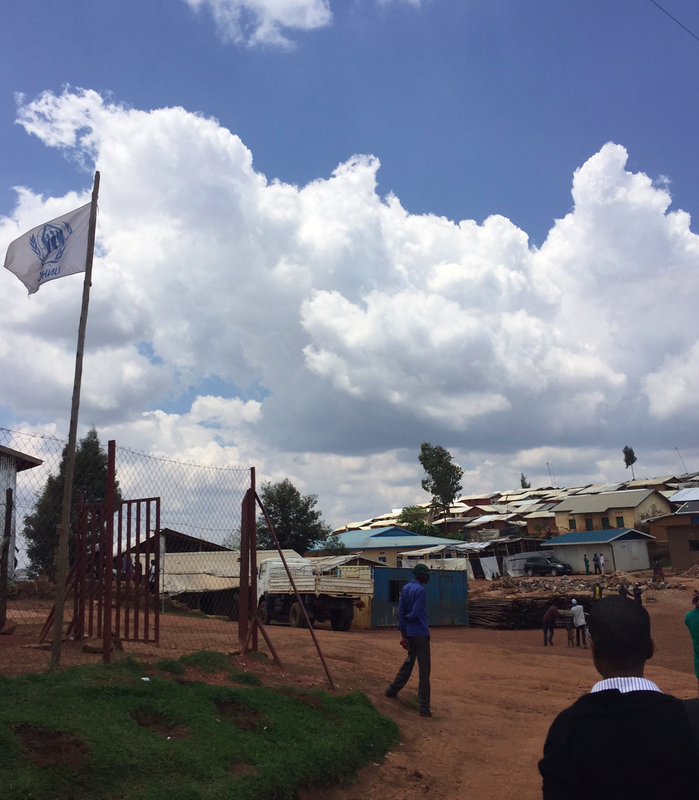
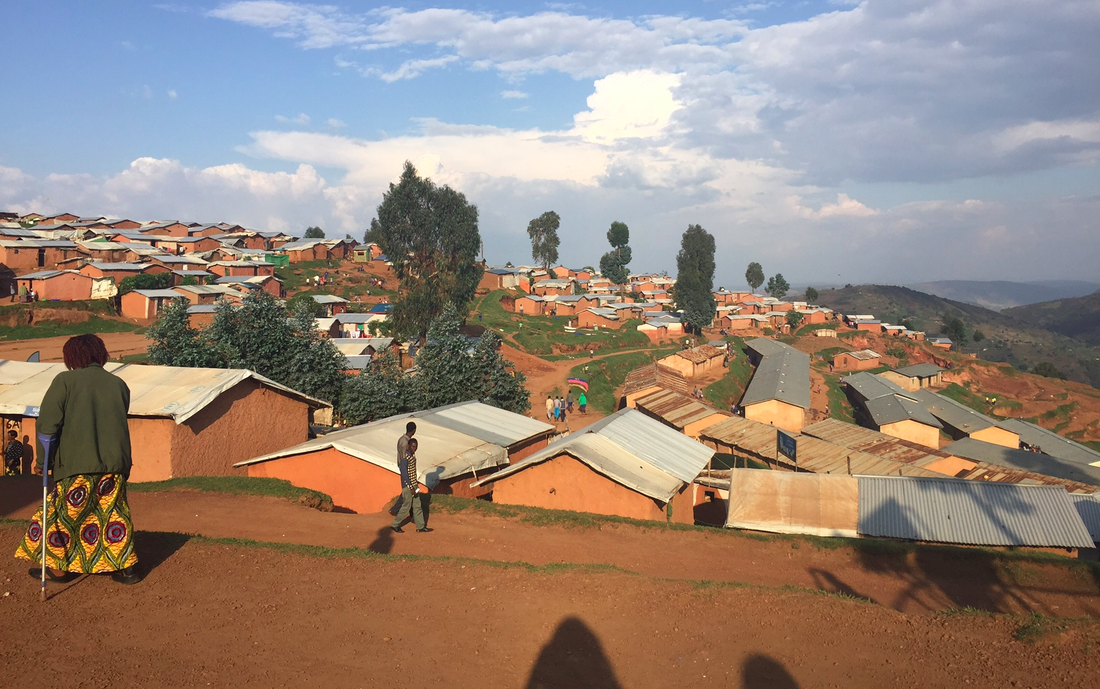
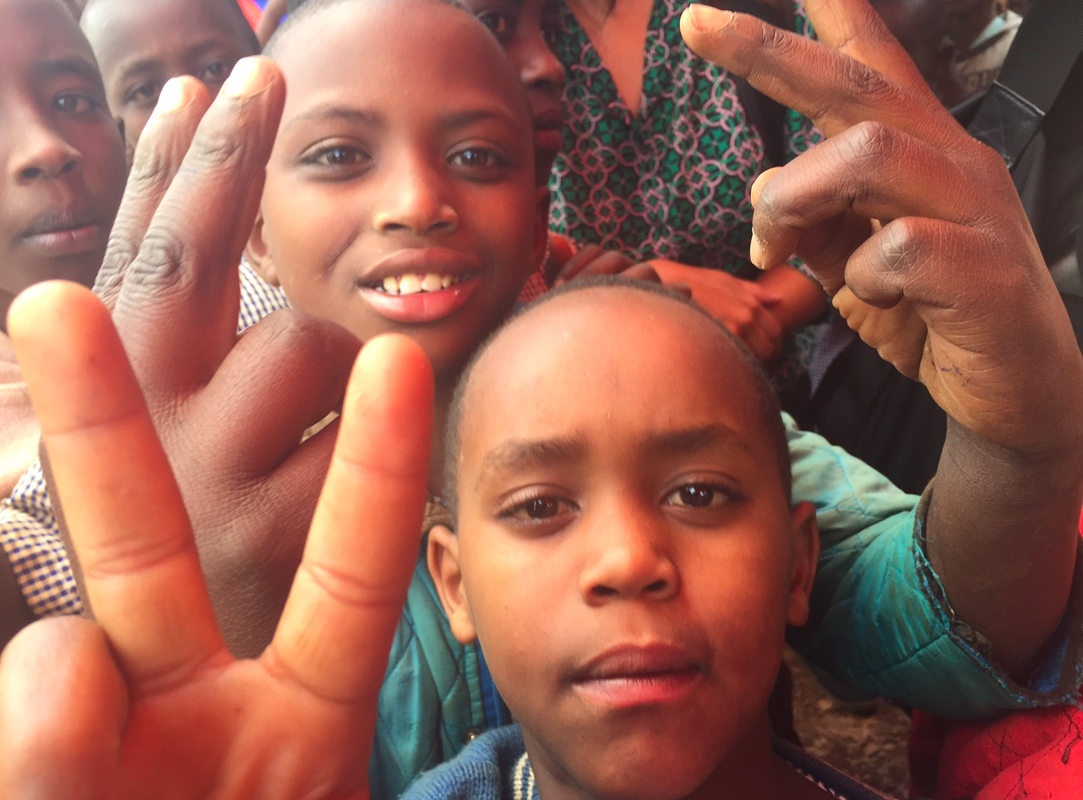
 RSS Feed
RSS Feed
